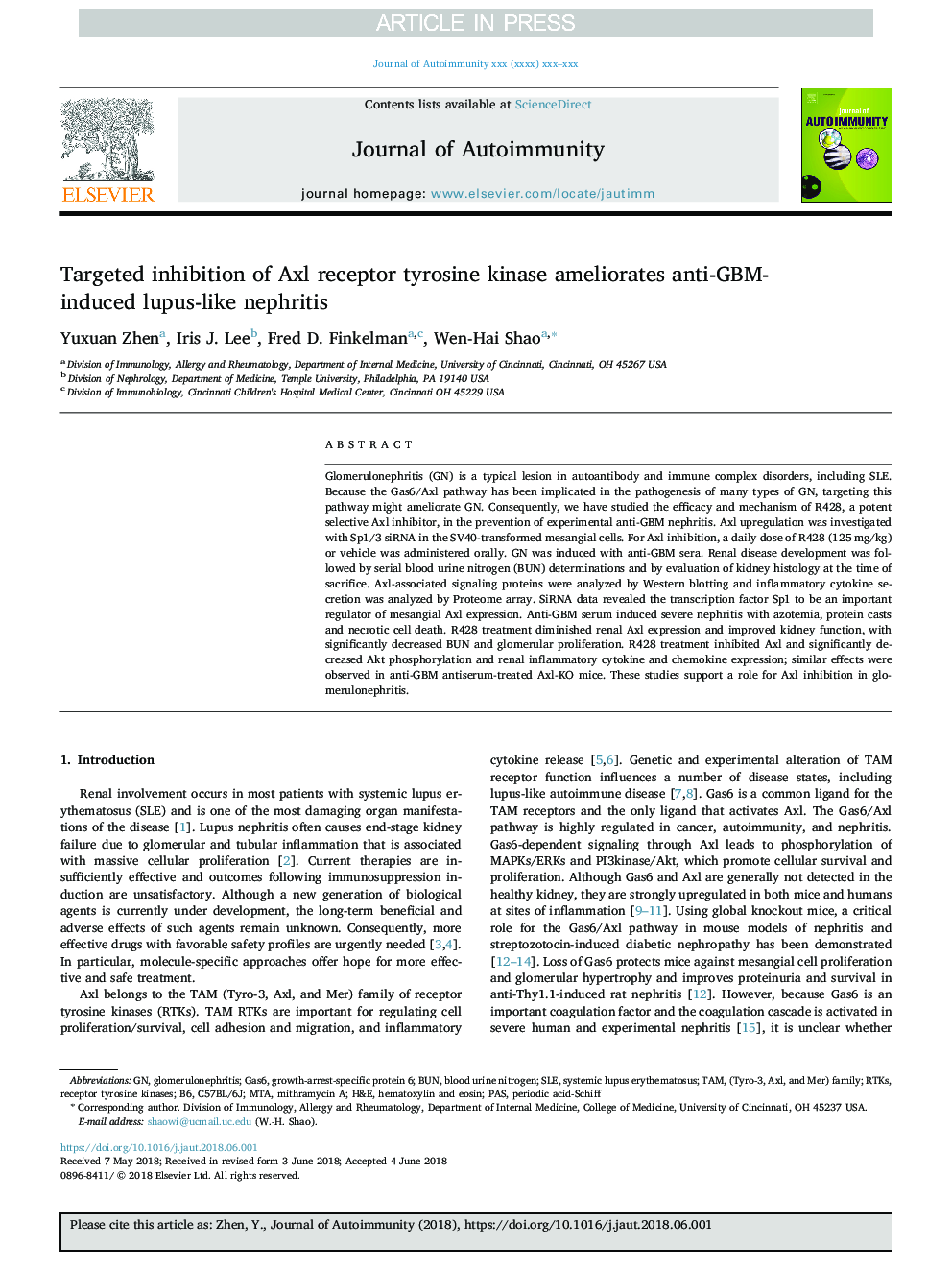| Article ID | Journal | Published Year | Pages | File Type |
|---|---|---|---|---|
| 8952027 | Journal of Autoimmunity | 2018 | 8 Pages |
Abstract
Glomerulonephritis (GN) is a typical lesion in autoantibody and immune complex disorders, including SLE. Because the Gas6/Axl pathway has been implicated in the pathogenesis of many types of GN, targeting this pathway might ameliorate GN. Consequently, we have studied the efficacy and mechanism of R428, a potent selective Axl inhibitor, in the prevention of experimental anti-GBM nephritis. Axl upregulation was investigated with Sp1/3 siRNA in the SV40-transformed mesangial cells. For Axl inhibition, a daily dose of R428 (125â¯mg/kg) or vehicle was administered orally. GN was induced with anti-GBM sera. Renal disease development was followed by serial blood urine nitrogen (BUN) determinations and by evaluation of kidney histology at the time of sacrifice. Axl-associated signaling proteins were analyzed by Western blotting and inflammatory cytokine secretion was analyzed by Proteome array. SiRNA data revealed the transcription factor Sp1 to be an important regulator of mesangial Axl expression. Anti-GBM serum induced severe nephritis with azotemia, protein casts and necrotic cell death. R428 treatment diminished renal Axl expression and improved kidney function, with significantly decreased BUN and glomerular proliferation. R428 treatment inhibited Axl and significantly decreased Akt phosphorylation and renal inflammatory cytokine and chemokine expression; similar effects were observed in anti-GBM antiserum-treated Axl-KO mice. These studies support a role for Axl inhibition in glomerulonephritis.
Keywords
Related Topics
Life Sciences
Immunology and Microbiology
Immunology
Authors
Yuxuan Zhen, Iris J. Lee, Fred D. Finkelman, Wen-Hai Shao,
